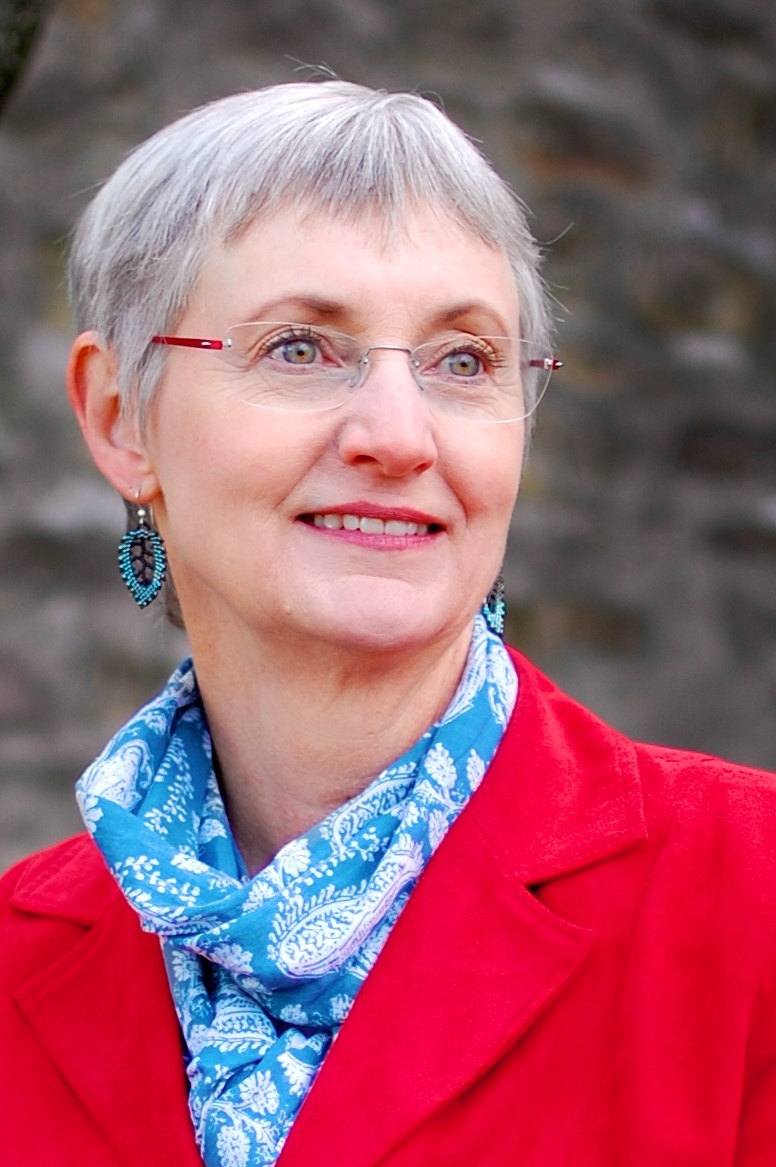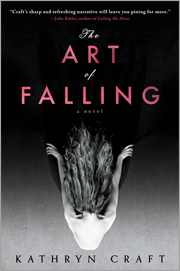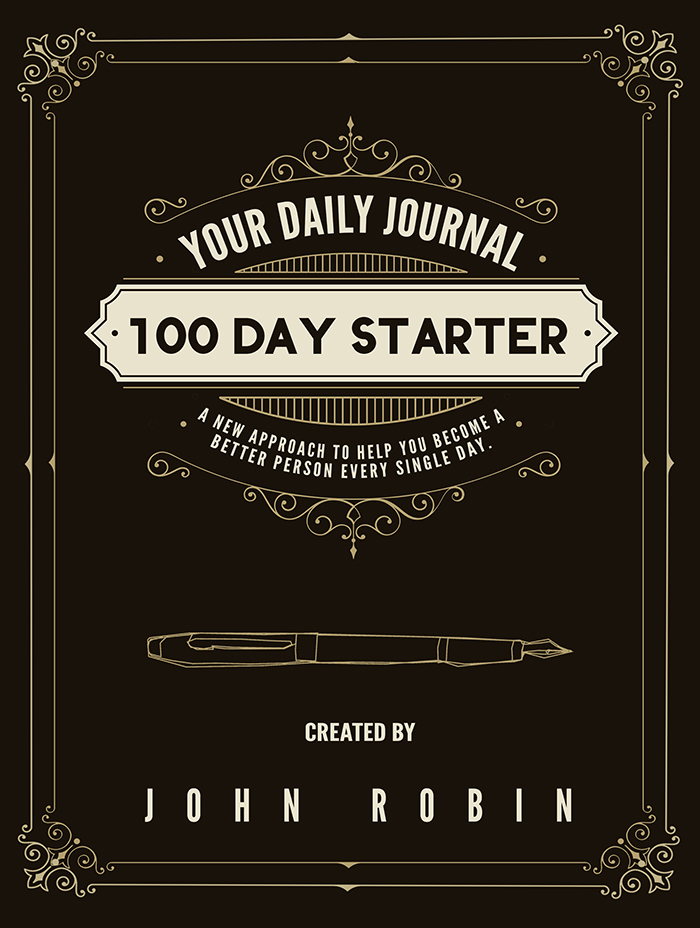Welcome back to Author Journeys. Those who have enjoyed the series so far can look forward to learning from yet another inspiring author and mentor as today’s guest, Kathryn Craft, answers some questions about her writing journey.
If this is your first time joining Author Journeys, this series is intended for writers who are eager to learn from authors, and readers who would like to learn more about the process of mastering storytelling. I hope you’re inspired and that afterward you’ll also check out some of my previous guests by clicking on the “Author Journeys” link above.
 Kathryn Craft is the author of two novels from Sourcebooks: The Art of Falling, and The Far End of Happy (May 2015). Long a leader in the southeastern Pennsylvania writing scene, she served on the boards of the Philadelphia Writers Conference and the Greater Lehigh Valley Writers Group, and chaired the Write Stuff conference. She currently serves as book club liaison for the Women’s Fiction Writers Association, heading up its Women’s Fiction Book Club on Goodreads. She hosts lakeside writing retreats for women in northern New York State, leads Craftwriting workshops, and speaks often about writing. She blogs monthly at Writers in the Storm on “Turning Whine into Gold,” and many of her craft articles are in the archives at The Blood-Red Pencil blog. She lives with her husband in Bucks County, PA.
Kathryn Craft is the author of two novels from Sourcebooks: The Art of Falling, and The Far End of Happy (May 2015). Long a leader in the southeastern Pennsylvania writing scene, she served on the boards of the Philadelphia Writers Conference and the Greater Lehigh Valley Writers Group, and chaired the Write Stuff conference. She currently serves as book club liaison for the Women’s Fiction Writers Association, heading up its Women’s Fiction Book Club on Goodreads. She hosts lakeside writing retreats for women in northern New York State, leads Craftwriting workshops, and speaks often about writing. She blogs monthly at Writers in the Storm on “Turning Whine into Gold,” and many of her craft articles are in the archives at The Blood-Red Pencil blog. She lives with her husband in Bucks County, PA.
Q: What do you enjoy the most about writing?
This may seem like a cop-out answer, but…everything! Writing challenges me in all the ways I love to be challenged. I love asking questions, learning new things and other research-oriented tasks. I love holing up in my office and thinking up new characters and situations and stirring up lessons I’ve learned about life. I love digging really deep for new layers of imagery and meaning. I like writing hopeful endings—we all need hope! I love applying my craft to word choice. Word order. Creative punctuation, and all the other nit-picky stuff that in the end game makes smoke come out of your ears. I like taking a huge, seemingly unmanageable task and breaking it down into achievable chunks. I love being overwhelmed, sitting with that a day or two, and coming back like a tiger let out of a cage. I love to make people laugh, and cry, and nod their heads knowingly. I love the fact that I can then go out in the world and do my very favorite thing, which is to meet new people through our mutual love of books. New people + my characters + wine = my kind of life! I also like the side benefits, such as public speaking and teaching up-and-coming writers.
This is my life. Unbelievable. I love it all.
Q: What is the most useful writing strategy you use?
When I start out, I try to imagine what it is my character wants most in the world. No point starting to write before I know this, because I will undoubtedly stray in a direction that will not be useful. The writing it takes to make this discovery does not necessarily become part of the book.
Then, I think of several key emotional turning points that the character must undergo on her journey. Some people call these “plot points” but that’s not what I’m after yet—I’m seeking the aftermath of plot points; those realizations necessary to take the character from where she begins to where she will end up. By thinking emotionally, I will be sure to continue to cement the relationship between the reader and the character along my protagonist’s arc.
This creates the backbone of the story, and is enough to get me writing. I can fine-tune structure later.
Q: In your opinion, what is it that makes a great book?
I read and write book club fiction, so my answer will be skewed to that market. I like books with a strong, deep point-of-view, so that I can see the world through new eyes. I like it when the character set allows a prismatic view of a premise—in The Art of Falling I look at what it takes to nurture body and soul from the perspectives of a dancer who eats little yet whose body expectations are high, her mother who overeats emotionally, a woman with cystic fibrosis who must calorie-load to survive, a baker, a dance critic whose sister is severely compromised by an eating disorder, and others orchestrated to provide differing perspectives. A story like that will incite plenty of conflict for the author, and rousing discussions for readers.
I like a book where it isn’t always clear who are the good guys and the bad guys, as in Ann Patchett’s Bel Canto. That shows the writer has taken care not to resort to stereotypes, and is happy to challenge the reader to think.
A great book offers up troubling human truths. If done so with lush yet spare language that supports the meaning of each sentence? Ahh.
I also like a book that doesn’t tie up too neatly at the end, since “Where do you think these characters will be five years down the road” is such an interesting question to ponder.
Q:How do you push through hard times like writer’s block, rejection, or negative pressure from your publisher or readers?
I spent a lot of time thinking about these things for my series at Writers in the Storm, “Turning Whine in to Gold,” so I love this question! I just completed a series adapting Don Miguel Ruiz’s Four Agreements for writers, which will give you all the wisdom you need to surmount the emotional challenges of being a writer. Here’s a brief recap:
Be impeccable with your word. This applies most obviously when you’ve promised work, of course, but has deeper ramification when applied to self. We only tend to doubt that we have something worthy to say when we are not doing the work. A writer must show up to the page and put black marks on it. Period. That’s not the end, of course, but it’s the very necessary beginning. A writer is someone who undertakes the act of writing—so act. And if you get stuck, back up to reconsider the choices you’ve made. Or learn more about craft. Or ask a mentor.
Don’t make assumptions. To build a writing career on a solid foundation, you must deal in fact and act from a place of knowledge. This requires that you ask questions. Get used to it! Unless your publisher is Dr. Evil, frank communication about issues as soon as they erupt tend to solve negative perceptions.
Always do your best. “Good enough” is not a way to stand out in a competitive market—but if you’ve truly done your best, it’s easier to watch the chips fall where they may. You have controlled everything that was yours to control, and can rest easy with that.
Don’t take anything personally. This one was huge for me. When people criticize or judge you, they are telling you more about themselves than they are about you. The creative arts are a subjective business by design, and thank goodness for it. There is a book for every reader, and room for all of us writers! So if not every agent wants to see your full manuscript, or not every review is stellar, those were not “rejections”—they were “misalignments.” Why be disappointed when an agent says, “This isn’t for me”? Thank goodness she freed you to move on—why would you want someone representing your work if she didn’t love it?
And bad reviews will happen. Hopefully your title, cover art, and back cover copy will self-select your ideal reader, but mistakes happen (mostly because, ahem, the reader “assumes” she knows how the book will be, and stops paying attention to what it is). If you can crack the code and learn something from this feedback, especially when a pattern of comments presents itself, great. But don’t sweat them. If you’ve done your best, that’s all you can ask of yourself at any given time.
Q: What tips do you have for aspiring writers?
Two of my favorite tips are twists on widely held adages.
The first is “Write what you know.” Start there if you want, because it’s easier. But as soon as you challenge yourself to move out of your comfort zone, the reader will sit up and take note. You can bet on it. It will also help you stay engaged with your chosen career over the long haul if you are stimulated by new ideas along the way.
The second is “Story is conflict.” I love this simple definition and whip it out often—with one modification. “A story is about a certain kind of conflict.” That one change will keep the kitchen sink and other irrelevant elements out of your story, and keep you focused on developing a cohesive tale.
As for all of the daunting tasks that can leave an aspiring or working author quaking with fear, I say this: Write a character who is brave enough to face her fear. Pretend you are that character—then summon her bravery and just do it. After all, she was part of you all along.
About Kathryn’s novel, The Art of Falling, a work of literary women’s fiction from Sourcebooks:
 “Craft’s debut novel lovingly traces the aesthetics of movement and gently explores the shattering pain of despair. A sensitive study of a woman choreographing her own recovery.”
“Craft’s debut novel lovingly traces the aesthetics of movement and gently explores the shattering pain of despair. A sensitive study of a woman choreographing her own recovery.”
—Kirkus
All Penny ever wanted to do was dance—and when that chance is taken from her, it pushes her to the brink of despair, from which she might never return. When she wakes up after a traumatic fall, bruised and battered but miraculously alive, Penny must confront the memories that have haunted her for years, using her love of movement to pick up the pieces of her shattered life.
Read an excerpt at:
http://kathryncraft.com/Books.html#excerpt
Buy The Art of Falling:
EBOOK:
Kobo: http://store.kobobooks.com/en-US/ebook/the-art-of-falling-1
Kindle: http://www.amazon.com/Art-Falling-Kathryn-Craft-ebook/dp/B00F3D8KKQ/
Nook: http://www.barnesandnoble.com/w/art-of-falling-kathryn-craft/1114581349?ean=9781402285202
PRINT BOOK:
The Art of Falling is available in bookstores everywhere. If it’s not on the shelf—ask!
Amazon: http://www.amazon.com/The-Art-Falling-Kathryn-Craft-ebook/dp/B00F3D8KKQ
BN: http://www.barnesandnoble.com/w/art-of-falling-kathryn-craft/1114581349
Indie Bound: http://www.indiebound.org/book/9781402285196
Connect with Kathryn:
Website: www.kathryncraft.com
Blog: monthly posts at www.writersinthestormblog.com with her series “Turning Whine into Gold”
Twitter: @kcraftwriter
Facebook: www.facebook.com/KathrynCraftAuthor
Fan email address: kathryn@kathryncraft.com

